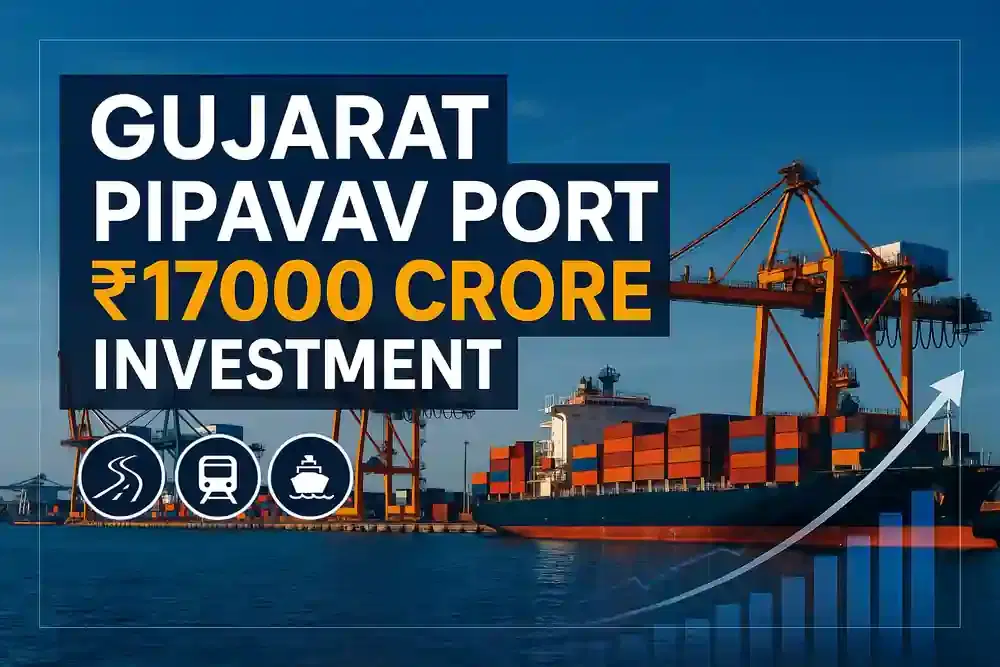Gujarat Pipavav Port Signs ₹17,000 Crore Investment MoU for Future Expansion
Transportation
|
29th October 2025, 8:31 AM

▶
Stocks Mentioned :
Short Description :
Detailed Coverage :
Gujarat Pipavav Port Limited (GPPL) has entered into a significant Memorandum of Understanding (MoU) with the Gujarat Maritime Board, signaling potential future investments worth ₹17,000 crore at Pipavav Port. This ambitious plan is a non-binding agreement and is subject to GPPL successfully obtaining a long-term extension of its existing operating concession, which is set to expire in September 2028.
The proposed infrastructure development aims to substantially boost the port's capabilities across various segments. This includes increasing capacity for handling containers, liquid cargo, and vehicles through roll-on/roll-off (Ro-Ro) services. Furthermore, GPPL intends to expand its storage yards and rail siding capacity to improve logistical efficiency. The company also plans to deploy specialized cargo handling equipment and deepen waterfront access to accommodate larger vessels.
Enhancing multimodal connectivity through integrated ocean, rail, and road networks is a key focus to better serve Northwest India. Strategic partnerships are also anticipated as part of this expansion blueprint. Recently, GPPL also secured a contract from Oil and Natural Gas Corporation (ONGC) for port and storage facilities to support ONGC's offshore supply base.
Impact: This MoU indicates substantial future growth potential for Gujarat Pipavav Port, which could lead to increased revenue and operational efficiency. Investors may view this positively, anticipating enhanced competitiveness and capacity. The stock price reacted positively, rising by 5% following the announcement. Rating: 8/10
Difficult Terms Explained: Memorandum of Understanding (MoU): A formal written agreement between two or more parties outlining the general principles and intentions of a joint venture or project. It is typically non-binding. Concession: A grant of rights, typically by a government or public authority, allowing a private entity to operate a public service or use public property (like a port) for a specified period. Roll-on/Roll-off (Ro-Ro): A method of maritime transport for wheeled cargo, such as cars, trucks, and trailers, where they are driven on and off the vessel.